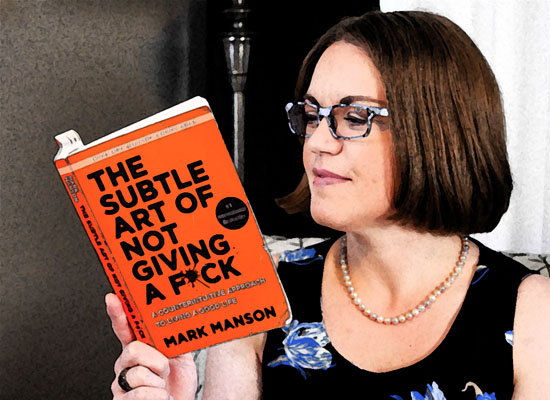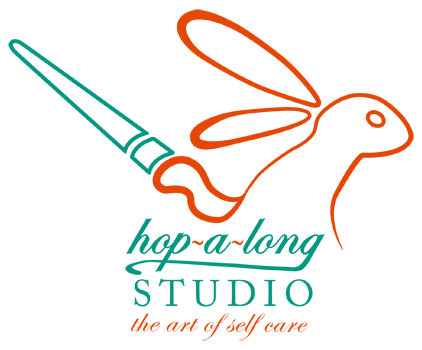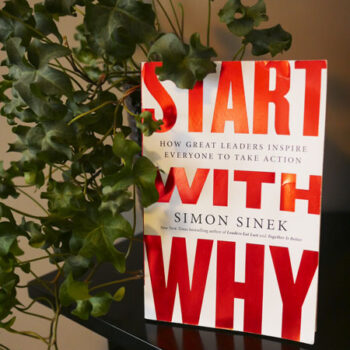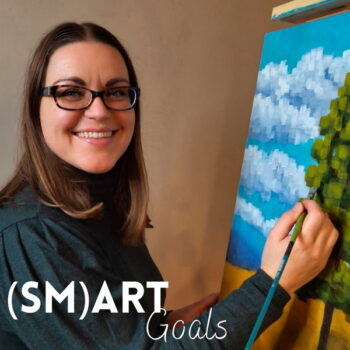
3 Lessons from The Subtle Art of Not Giving a F*ck
Today I wanted to share 3 Lessons from The Subtle Art of Not Giving a F*ck, a counter intuitive approach to living a good life. This book was recommended to me several years ago when I started working on my personal self-care and mental health. When I read it, it changed my perspective on many things in my life.
When I chose books for my goal of reading 12 books in 2020, I added The Subtle Art of Not Giving a F*ck since I it made such an impression on me when I first read it. I want to re-read this book every few years as to not forget the important lessons it teaches.
Choosing Carefully What We Care About
The first lesson I learned from this book is the idea of choosing carefully what we care about. The author, Mark Manson, talks about the idea that happiness is a problem. He is not saying that happiness is a bad thing in itself. But our expectations around happiness, that we should be happy all the time is a problem.
Being happy all the time is not realistic. Moving to one emotional happy high to another isn’t going to really bring joy or constant happiness. It’s not that we shouldn’t have joy or care for others, but it’s choosing carefully what we will care about.
Having More
We live in a world that tells us that we should have more. More stuff, more experiences, more friends, more everything. This doesn’t bring us happiness. In my personal experience having more brings more opportunities to be overwhelmed and our attention being split in too many directions. We are expected to care about everything all the time, which is downright exhausting and impossible.
Mark discusses choosing carefully what we care about. We only have so much energy and time. If we try to do everything and please everyone, this isn’t going to bring us happiness or a sense of purpose. It will usually bring with it feelings of hopelessness, depression and anxiety.
How do we Choose?
So how do we choose? By using our values to help us decide what is most important, it can help us move past the noise and distraction to determine what is truly important to us. This is how we can find joy and happiness in our lives, by committing to the things that truly mean something.
Value in Suffering
As a society we are taught to avoid suffering, but there is value in suffering. Without suffering we will never grow. During this time of pandemic many of us are asking “Why?” Why is there suffering? Why are people losing their jobs and their loved ones? It can seem flippant to say that there is value in suffering.
If we didn’t have problems, if we didn’t have suffering, would any of us move out of our comfort zone and try new things? Could we say goodbye to certain relationships and invite new ones into our lives if we didn’t have problems and suffering? How would we learn some of the most valuable things about ourselves if we didn’t have suffering?
Avoiding Suffering
As I read this book, I realized that I’ve been avoiding suffering in my own life. Between the book I read earlier this year, “Failing Forward” and “The Suble Art of Not Giving a F*ck” I’ve realized that I will go to great lengths to avoid suffering and difficulty. I see suffering as something that should be avoided at all costs instead of seeing it as a catalyst to help me get to where I want to be. Instead of seeing suffering as something that is holding me back, I need to accept that it is helping me to be the person I want to be.
Embracing Suffering
Embracing suffering as part of the growth process is not an easy thing. I haven’t been doing that great of a job with dealing with setbacks and issues, especially with this website. I’ve had a few moments where I have wanted to throw in the towel, go back to working a “regular job” and just forget about it all. This is a very different path than my previous career and it requires learning new skills. It has been a lot of learning, failing, more learning, having setbacks, still more learning, making some progress, some more learning and having more setbacks.
Suffering Through the Lens of Refinement
I have been trying to see suffering through the lens of refinement. These liminal moments are uncomfortable; they feel like walking in a desert. Instead of seeing them as negative experiences, we should see them as something that is helping us to prepare for something more. By having the awareness to see struggle from a different angle, we can find acceptance and joy in the process.
Many of us put on the mask that “Everything is Awesome” even when it isn’t. I truly believe that instead of avoiding the uncomfortable things, by leaning into them we can change for the better. Instead of expecting our lives to be always happy and successful, this can help us become more resilient. It can help us to refine us, to make us stronger and help us to get to where we want to be. By accepting the pain and the hardship, what we learn from it leaves us in a place that we can help others through their suffering.
The Importance of Saying No
The third lesson I learned from this book is the importance of saying no. We often talk about having personal boundaries and how it is important to say no, but how do we act that out in our lives? I like Mark’s definition of boundaries, “the delineation between two people’s responsibilities for their own problems.”
Mark talk about taking responsibility for our actions in this book. This doesn’t always mean taking the blame for what happens, but taking responsibility in the moment for what we say and do. Sometimes we are blamed for things that are not our responsibility, but we get to choose how we react and what we say.
When we create healthy boundaries, often the tension comes from others expecting us to take responsibility for their problems, or we take on too much responsibility for other people’s problems. Without good boundaries, we end up taking responsibility for things that are not our responsibility to take. This is not healthy for us or the other person.
Creating Good Boundaries
Creating good boundaries is not an easy thing, but it does start by having good values. By understanding our personal values, we can understand what is truly important to us. To create good boundaries we need to reject the things that are not important to us. The word rejection can seem harsh, but we all need to reject or say no to things in our lives. We need to define what is important, we need to assert our values otherwise we cannot live a life of purpose and strong identity.
By creating good boundaries, this gives us so much freedom. It allows us to have the freedom to commit to the goals and the people that are truly important to us. This may change our careers, our relationships and our life purpose. But the wonderful thing is that gives us more focus. Instead of focusing on everything and living in distraction, it helps us to decide what’s truly important to us and what we really care about.
With every boundary we give ourselves more freedom to live the life we want and we can make better decisions. It also keeps us from feeling like we’re missing out on things because we have already defined what is important to us.
What do You Think?
I would love to hear what you think about the lessons that I learned from this book. If you have read “The Subtle Art of Not Giving a F*ck” I would love to hear your impressions of this book. You can post your comments below or contact me directly.





